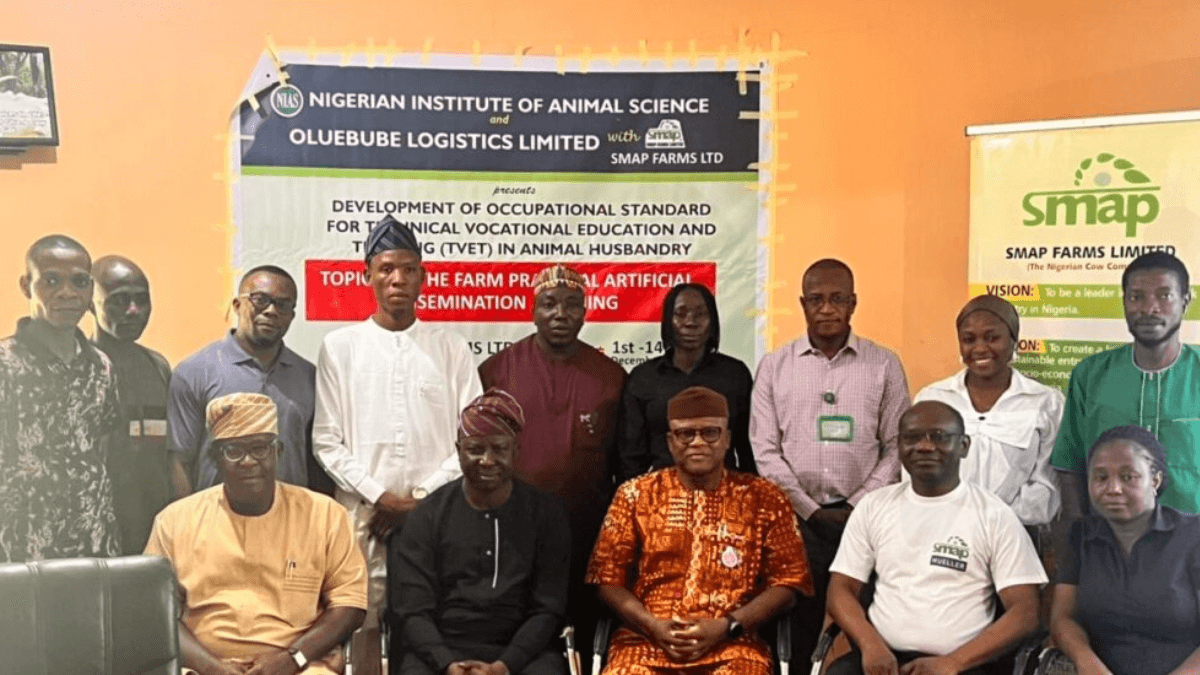News in brief:
– Artificial insemination and ranching are transformative tools for livestock farming, offering job opportunities and improved food security.
– Proper training and government prioritisation are essential for widespread adoption and success.
The CEO of SMAT Farms Ltd., Suraj Ajiboye, has called on the Tinubu-led administration to prioritise livestock farming as a way to create jobs for the nation’s youth and increase food supply.
Speaking at a two-week program on the “Development of Occupational Standard for Technical Education and Training in Husbandry” at the University of Ibadan, Ajiboye emphasised the vast potential of livestock farming to tackle unemployment and food insecurity.
Artificial insemination in livestock breeding
One of the key innovations he highlighted was the use of artificial insemination in livestock breeding. It involves using processed semen to fertilise female livestock without physical mating, which is a powerful tool for improving the quality of livestock. Ajiboye explained that it is beneficial for cattle and goats, enhancing meat production and the health of indigenous animals.
In addition to artificial insemination, Ajiboye advocated for the adoption of ranching systems across Nigeria. Ranching, where livestock are kept in controlled, enclosed spaces, offers significant benefits such as disease control, enhanced animal security, and increased productivity. He noted that many states in Nigeria have already passed laws to support ranching, but further action and investment are needed to ensure its widespread implementation. Ajiboye expressed hope that under President Tinubu’s leadership, the livestock sector would be reformed and revitalised to help generate employment and boost the nation’s agricultural output.
Professor Akinyele Oluwatomisin Adeseyinwa, the first Vice President of the Nigerian Institute of Animal Science, also spoke at the event and endorsed the suggestions as viable solutions to reduce farmer-herder conflicts. He further explained that the training programme was designed to create a network of qualified professionals who would pass on their knowledge and skills to farmers across the country. This “train the trainer” approach aims to expand the adoption of artificial insemination and modern livestock management practices in rural areas.
The discussions and proposals from the event hold global relevance as artificial insemination and ranching have the potential to transform livestock farming worldwide, especially in regions facing challenges related to food security, unemployment, and traditional farming methods. These innovations can create job opportunities, enhance the quality of livestock, and contribute to overall agricultural growth.



